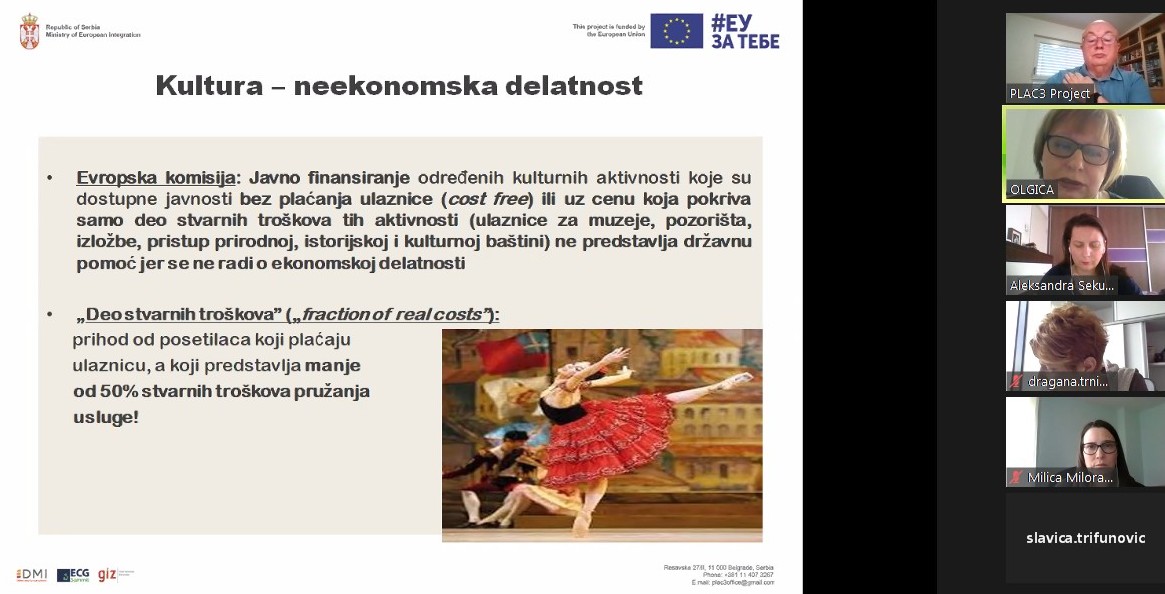Policy and Legal Advice Centre (PLAC III) experts held a workshop on harmonisation of state aid schemes in the sector of culture and media in Serbia with the state aid rules that are in force in the European Union, which is part of the Negotiation Chapter 8 (Competition).
The workshop was held on 24 December 2020. It was attended by members of the Commission for the State Aid Control, the Ministry of Culture and Information, cultural institutions and media outlets. Deputy President of the Commission for State Aid Control Ljiljana Blagojević said that the Commission has been an independent operational body since the adoption of the new Law on State Aid Control, which operates on the basis of that Law and the Regulation on the rules for state aid granting. She announced the adoption of several new regulations that would result from the current one.
Project expert Olgica Spevec said that Article 107 of the Treaty on the Functioning of the European Union, which is the legal basis in the EU, prohibits Member States from granting state aid if such intervention gives an advantage to any of market participants. State aid rules apply exclusively to economic activities. According to the European Commission, culture is a non-economic activity and most of the cultural activity is outside state aid. The instructions given to the Member States are that the activity is non-economic if the realised income (e.g. from ticket sales) is less than 50 percent of the actual costs of providing the service.
The rules on state aid in the field of culture and protection of cultural and natural heritage apply to activities of an economic nature that are financed from the price/fee for services provided. These are the activities of cinemas, concerts, festivals; public funding of cultural and cultural heritage facilities from which private owners (museums, art collections, theatres) benefit exclusively, and public funding of art schools that are not part of the national education system. Spevec presented cases of exemptions from the rules in EU member states – Cyprus and Croatia. When it comes to financing of media, state aid for newspapers and magazines must be reported to the European Commission for evaluation because it is a market activity. According to Spevec, the Commission is very restrictive and has approved only 34 such state aid schemes since 2005, including three related to the Covid-19 pandemic. The financing of public service broadcasting lies within a Member State authority, where state aid is allowed as long as it does not distort competition in the internal market.
Expert Aleksandra Sekulović presented a list of existing state aid schemes for culture and media in Serbia and an analysis of their compliance with EU rules. All relevant legal acts are in the jurisdiction of the Ministry of Culture, except for the Regulation on incentives for investors to produce audiovisual work, which is within the competence of the Ministry of Economy. Based on the analysis, a draft Guidelines for the harmonisation of state aid schemes for culture and media with EU state aid rules were developed.
In the discussion, the representative of the Ministry of Culture, Dejan Stojanović, said that the Law on Public Information and Media will be amended next year, and that in 2022 the Law on Electronic Media and the Law on Public Media Services will be harmonised with EU rules.




